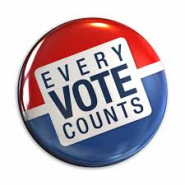Summary of the American Rescue Plan (H.R. 1319)
This bill has 75% strong bipartisan support among the American public.
However, not one Republican member of Congress voted yes to this plan.
Below is a summary of the $1.9 trillion pandemic relief package enacted this week. The bill is over 1600 pages long and so further information will be provided going forward. This information is provided courtesy of the Allegheny-Fayette Labor Council. (download in .pdf format)
Public Health. Provides $48.3 billion for testing, contact tracing and personal protective equipment (PPE); $7.5 billion for vaccine distribution; and $5.2 billion for procurement of vaccines and supplies. Provides $10 billion to expand domestic production of PPE, vaccines, and medical supplies under the Defense Production Act.
Relief for State and Local Governments. Provides $350 billion in aid to state, local, aid to help deal with the budgetary impact of the pandemic.
LOCAL AID AMOUNTS:
- Pennsylvania: $7.29 Billion
- Allegheny County: $382 Million
- City of Pittsburgh: $354 Million
- Pittsburgh International Airport (Airport Authority): $36 Million
- Pittsburgh Metro Urbanized Transit Funding: $248 Million. (This includes Port Authority, Beaver, Westmorland, etc. Waiting on Port Authority’s exact number)
Education. Provides $125 billion in state grants to help local educational authorities reopen K-12 public schools safely, address instruction loss and support students as they recover from the effects of the pandemic. Provides $39.6 billion to colleges and universities and their students, at least half of which must be spent on emergency financial aid grants.
Direct Payments. Provides $1,400 in direct payments to individuals making less than $75,000 and married couples making under $150,000 (full amount), and for dependents claimed on federal tax returns. Payments scale back up to $160,000.
Paycheck Protection Program (PPP). Extends eligibility for the PPP forgivable loan program to more tax-exempt groups, including 501(c)(5) labor organizations. Creates a new $28.6 billion grant program for restaurants.
Employee Retention Tax Credit. Extends the current tax credit through Dec. 31, 2021, and increases the percentage of wages covered for severely distressed businesses.
Child Tax Credit. Reduces child poverty by expanding the child tax credit through 2021, increasing the maximum credit to $3,600 for each child younger than 6 and $3,000 for other children, and making the credit fully refundable.
Child Care. Expands the Child and Dependent Care Tax Credit to $4,000 per child or $8,000 for two or more children and makes the credit fully refundable. Provides $39 billion for childcare, including $15 billion in grants to states to help low-income families afford childcare and help essential workers regardless of their income and $24 billion for state grants to childcare providers.
Unemployment Benefits. Extends pandemic-related unemployment assistance that was set to expire on March 14, including the current $300 supplement to unemployment benefits (called “Pandemic Unemployment Compensation”), for another six months through Sept. 6. Provides that the first $10,200 of unemployment benefits received by taxpayers making less than $150,000 will not be subject to federal taxation.
Veterans. Provides $386 million to create a rapid retraining program for veterans who are unemployed because of the pandemic.
Relief for Multiemployer Pensions. Provides about $86 billion in financial assistance to struggling multiemployer pension plans, which the plans will not have to repay, to cover all benefits due through plan year 2051, with no cuts to accrued benefits.
Workplace Safety. Provides $200 million for pandemic-related worker protection activities at the Labor Department, half of which would go to the Occupational Safety and Health Administration (OSHA) to support OSHA enforcement and worker training in high-risk sectors such as meat processing, health care, correctional facilities and agriculture.
Full COBRA Subsidies. Subsidizes 100% of health care premiums of COBRA-eligible individuals who lose their job or had reduced hours, who will not have to pay any premiums, for six months. The employer or health plan can claim a refundable tax credit against their Medicare payroll tax liability for the cost of the premiums.
Airline and Aerospace Payroll Support. Provides $15 billion for the wages and benefits of employees of airlines and contractors in the airline industry.
Transportation. Provides $30.4 billion for grants to transit agencies, which can be used for operating expenses, including payroll costs and PPE, and $1.7 billion for Amtrak in fiscal year 2021, including funding to recall furloughed workers and restore the frequency of long-distance routes.
Federal Employee Leave. Provides $570 million to create an Emergency Federal Employee Leave Fund to provide up to 15 weeks of emergency paid leave for civilian employees and postal workers, including those who have COVID-19, who are caring for someone with COVID-19 are looking after children during virtual classes or are obtaining a COVID-19 vaccine. Provides $13 million for an Emergency TSA Employee Leave Fund and $9 million for an Emergency FAA Employee Leave Fund.
Paid Sick Leave and Paid Family and Medical Leave Tax Credits. Extends current tax credits through September 2021 and expands eligibility to include state and local governments.
Earned Income Tax Credit. Expands the earned income tax credit for taxpayers without children for 2021 by increasing both the credit percentage and phaseout thresholds.
Housing. Provides $21.6 billion for emergency rental assistance to prevent evictions and $10 billion to help homeowners avoid foreclosure; $5 billion for emergency public housing vouchers; and $5 billion to address homelessness.
Nutrition Assistance. Extends a 15% increase to monthly benefits under the Supplemental Nutrition Assistance Program through Sept. 30, 2021.
